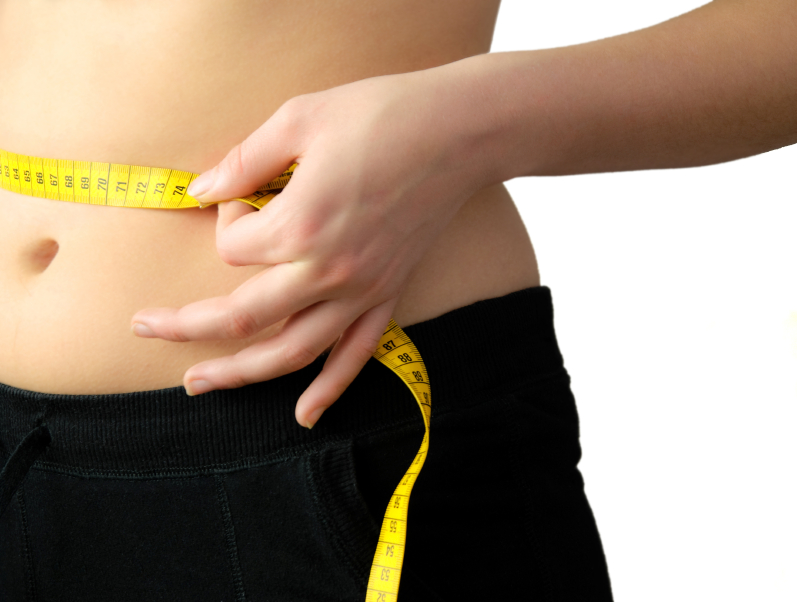19 Tips to Help You Lose Belly Fat
Belly fat is more than a nuisance that makes your clothes feel tight it can also be harmful.

Why is it a risk?
One type of belly fat — referred to as visceral fat — is a major risk factor for type 2 diabetes, heart disease, and other conditions
Many health organizations use body mass index (BMI) to classify weight and predict the risk of metabolic disease.
However, this is misleading, as people with excess belly fat are at an increased risk even if they look thin.
Though losing fat from this area can be difficult, there are several things you can do to reduce excess abdominal fat.
Effective tips to lose belly fat
1. Soluble fibre may help you to lose weight by increasing fullness and reducing calorie absorption.
Make an effort to consume some every day and excellent sources include: flax seeds, Brussels sprouts, avocados, legumes and blackberries.
2. Avoid trans fats as they are created by pumping hydrogen into unsaturated fats, such as soybean oil.
These fats have been linked to inflammation, heart disease, insulin resistance, and abdominal fat gain in observational and animal studies.
A 6-year study found that monkeys who ate a high trans fat diet gained 33% more abdominal fat than those eating a diet high in monounsaturated fat.
They’re found in some margarines and spreads and also often added to packaged foods. They are often listed as partially hydrogenated fats.
3. Limit alcohol because although it can have health benefits in small amounts, it’s seriously harmful if you drink too much.
Research suggests that too much alcohol can also make you gain belly fat.
One study on alcohol use involved more than 2,000 people.
Results showed those who drank alcohol daily but averaged less than one drink per day had less belly fat than those who drank less frequently but consumed more alcohol on the days they drank.
Observational studies link heavy alcohol consumption to a significantly increased risk of developing excess fat storage around the waist so cutting back may help reduce your waist size.
You don’t need to give it up altogether, but limiting the amount you drink in a single day can help.
4. Eat a high protein diet because protein is an extremely important nutrient for weight management.
High protein intake increases the release of the fullness hormone PYY, which decreases appetite and promotes fullness. Protein also raises your metabolic rate and helps you to retain muscle mass during weight loss.
High protein foods, such as fish, lean meat, eggs, dairy and beans are ideal if you’re trying to shed some extra pounds around your waist.
Many observational studies show that people who eat more protein tend to have less abdominal fat than those who eat a lower protein diet.
5. Reduce your stress levels because it can make you gain belly fat by triggering the adrenal glands to produce cortisol, which is also known as the stress hormone.
Research shows that high cortisol levels increase appetite and drive abdominal fat storage and women who already have a large waist tend to produce more cortisol in response to stress. Increased cortisol further adds to fat gain around the middle.
Minimising stress through self help measures such as meditation or exercise should be one of your priorities if you’re trying to lose weight.
6. Reduce your sugar intake because It contains fructose, which has been linked to several chronic diseases when consumed in excess.
These include heart disease, type 2 diabetes, obesity, and fatty liver disease and observational studies show a relationship between high sugar intake and increased abdominal fat.
Also its more than just refined sugar that can lead to belly fat gain as even healthier sugars, such as real honey, should be used sparingly.
7. Do aerobic exercise because it is an effective way to improve your health and burn calories and particularly effective at slimming your waistline
Studies also show that it’s one of the most effective forms of exercise for reducing belly fat. However, results are mixed as to whether moderate or high intensity exercise is more beneficial/
One study found that postmenopausal women lost more fat from all areas when they did aerobic exercise for 300 minutes per week, compared with those who exercised 150 minutes per week
8. Cut back on carbs — especially refined carbs – as reducing your carb intake can be very beneficial for losing fat, including abdominal fat.
Diets with under 50 grams of carbs per day cause belly fat loss in people who are overweight, those at risk for type 2 diabetes, and women with polycystic ovary syndrome.
In the Framingham Heart Study, people with the highest consumption of whole grains were 17% less likely to have excess abdominal fat than those who consumed diets high in refined grains.
Healthy carb sources include whole grains, legumes, or vegetables.
9. Perform resistance training with weights is important for preserving and gaining muscle mass. But, remember to get advice from a certified personal trainer rather than trying to do it by yourself and risking injury.
Based on studies involving people with prediabetes, type 2 diabetes, and fatty liver disease, resistance training may also be beneficial for belly fat loss.
One study involving teenagers who were overweight showed that a combination of strength training and aerobic exercise led to the greatest decrease in visceral fat.
10. Avoid sugary drinks, particularly those with liquid fructose as a sweetener as it can make you gain belly fat.
Studies show that sugary drinks lead to increased fat in the liver and one 10-week study found significant abdominal fat gain in people who consumed them regularly.
Sugary drinks appear to be even worse than high sugar foods.
Since your brain doesn’t process liquid calories the same way it does solid ones, you’re likely to end up consuming too many calories later on and storing them as fat.
11. Get plenty of restful sleep because it vitally important for many aspects of your health, including weight.
A 16-year study involving more than 68,000 women found that those who slept less than 5 hours per night were significantly more likely to gain weight than those who slept 7 hours or more per night.
12. Track your food and exercise amounts because although there are many things that can help you lose weight and belly fat, but consuming fewer calories than your body needs for weight maintenance is key.
Keeping a food diary or using an online food tracker or app can help you monitor your calorie intake. This strategy has been shown to be beneficial for weight loss and you can find many free apps/websites to track nutrient and calorie intake.
13. Eat fatty fish every week as they are incredibly healthy.
They’re rich in high quality protein and omega-3 fats that protect you from disease.
Some evidence suggests that these omega-3 fats may also help reduce visceral fat. Good sources are salmon, sardines, mackerel and anchovies.
14. Stop drinking fruit juice because although it provides vitamins and minerals, it’s just as high in sugar as soft drinks and other sweetened drinks so drinking large amounts may carry the same risk for abdominal fat gain
An 8-ounce serving of unsweetened apple juice contains 24 grams of sugar, half of which is fructose, so use 1/4 juice to 3/4 water to reduce your intake.
15. Drink apple cider vinegar as it has impressive health benefits, including lowering blood sugar levels.
It contains acetic acid, which has been shown to reduce abdominal fat storage in several animal studies and in a 12-week controlled study in men diagnosed with obesity, those who took 1 tablespoon of apple cider vinegar a day lost half an inch from their waists.
Taking 1–2 tablespoons a day is safe for most people and may lead to modest fat loss. BUT be sure to dilute it with water, as undiluted vinegar can erode the enamel on your teeth.
16. Eat probiotic foods, or take a probiotic supplement, as they have many health benefits, including helping improve gut health and enhancing immune function.
Researchers have found that different types of bacteria play a role in weight regulation and reduction of belly fat. If looking for a supplement choose one that includes members of the Lactobacillus family, such as Lactobacillus fermentum, Lactobacillus amylovorus and especially Lactobacillus gasseri
17. Try intermittent fasting, this is an eating pattern that cycles between periods of eating and periods of fasting.
There are a number of popular method: 24-hour fasts once or twice a week, fasting every day for 16 hours and eating all your food within an 8-hour period.
In a review study people experienced a 4–7% decrease in abdominal fat within 6–24 weeks.
However, there’s some evidence that intermittent fasting, and fasting in general, may not be as beneficial for women as for men. Always stop fasting immediately if you experience any negative effects.
18. Drink green tea as it is an exceptionally healthy drink.
It contains caffeine and the antioxidant epigallocatechin gallate (EGCG), both of which appear to boost metabolism.
EGCG is a catechin, which several studies suggest may help you lose belly fat. The effect may be strengthened when daily green tea is combined with exercise, but not obviously at the same time!
19. Change your lifestyle and if you want good results, you need to combine different methods that have been shown to be effective.
Many of the things mentioned here are things generally associated with healthy eating and an overall healthy lifestyle.
Therefore, changing your lifestyle for the long term is the key to losing your belly fat and keeping it off.
When you have healthy habits and eat real food, fat loss tends to follow as a natural side effect.
Helpful information:
None of this is rocket science, so see which of these tips you could adopt into your current regime and lifestyle. You don’t need to do all of them at once, you can pick one and try that first.
Based on my own experience reducing sugar was definitely helpful for me, and don’t forget that oestrogen dominance also plays a part in belly fat.
When your ovaries are no longer producing hormones, oestrogen is still being made in the fat cells of the abdomen, belly and thighs.
Checking your hormone balance will certainly be helpful and if sugar is something you are struggling with, don’t imagine that switching to sweeteners will help – evidence says it is in fact the reverse.
This article will give you more information on that.
https://anna.blog.wellsprings-health.com/sweetness-good-bad-and-ugly/



















